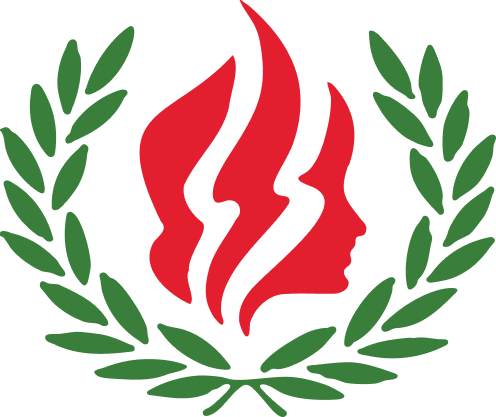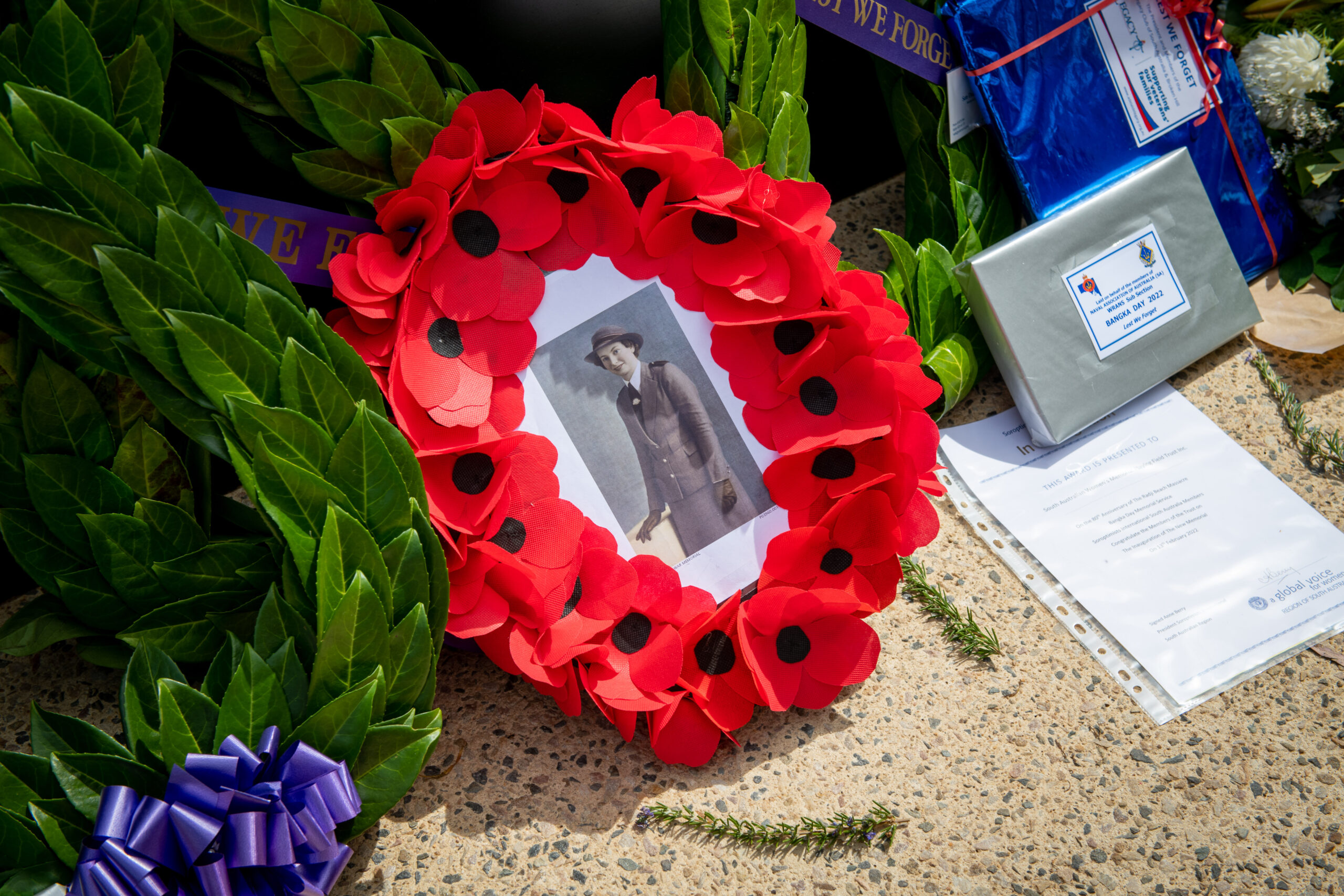His Excellency Rear Admiral Kevin Scarce, Governor of South Australia.
Acknowledge:
- The Hon Gail Gago MLC, Minister for Status of Women
- The Hon Tom Kenyon MP, Acting Minister for Veterans Affairs
- Ms Isobel Redmond MP, representing the Leader of the Opposition
- Members for the South Australian and the Federal Parliament
- Mr Bruce Parker, President SA Women’s Memorial Playing Fields Trust
- Ms April Williams, Vice President of the Trust
- Mrs Liz Scarce Patron Women’s Playing Fields
- Senior Members of the Australian Defence Force
- Members of Defence Veterans Organisations
- Distinguished guests, Ladies and Gentlemen
I feel very privileged to be here at the South Australian Women’s Memorial Playing Fields this morning to attend the Bangka Day Memorial Service.
I appreciate that this story has been told many times in many ways and by nurses who were actually on the Island at the time. I regret that I am unlikely to add further light to those remarkable events that took place in February 1942.
That said, I think it is vital that the story continues to be told and that we continue to meet on these fields every year to remind ourselves of the enormous price that many have paid for the democratic way of life that we enjoy today.
Perhaps such a reminder is timely. I recently read in a Lowy Institute survey that many young Australians do not seem to value our democratic form of government.
In that survey just 39 per cent of Australians aged 18 to 29 think democracy is better than other form of government. Almost a quarter believe that “for someone like me, it doesn’t matter what kind of government we have”, while 37 per cent say non-democratic rule can be best.
Now we all appreciate how surveys can be phrased to achieve the desired outcome. But if this level of complacency about the manner in which we are governed is mirrored in the broader community, then it should give us all cause for contemplation.
Winston Churchill probably said it best: “Democracy is the worst form of government, except for all those other forms that have been tried from time to time.” This great statesman knew a thing or two about the value of political freedom, having fought for it on occasions.
Over generations many Australians have also fought to protect our right to choose how we are governed and by whom. Today we commemorate one such event – the massacre of Australian nurses on Radji Beach in 1942.
On February 12 that year, with the fall of Singapore to the Japanese imminent, sixty-five Australian Army nurses were evacuated from the besieged city on the small coastal steamer Vyner Brooke. They left begrudgingly believing that their place was with their troops in Singapore.
As the Vyner Brooke passed between Sumatra and Borneo, Japanese aircraft bombed the overloaded ship. She sank quickly. Survivors escaped into lifeboats but were immediately strafed by Japanese aircraft.
Twelve Australian nurses were either killed in the attack or drowned. The remaining fifty-three reached Bangka Island in lifeboats, on rafts, or by drifting with the tide.
Wearing their Red Cross armbands, and having protected status as non-combatants, the nurses expected to be treated in a civilised manner by the Japanese. Their expectations were short lived.
By the morning of February 16, there were around 90 survivors gathered on the northern beach. They included allied servicemen, stretcher cases, civilians and 22 of the Australian nurses. A delegation set off for the nearest village to surrender and seek medical help. They were intercepted by a Japanese patrol which refused their surrender.
The 229th Regiment of the 38th Division of the Imperial Japanese Army rounded up the group, immediately separated and then killed the able-bodied servicemen. They returned to the beach, set up a machine-gun and ordered the nurses to walk into the sea. They were shot. Next it was the turn of the stretcher cases to be executed.
Miraculously there were two survivors. Although suffering terrible injuries, one British solider, Private Patrick Kingsley lived and so did one nurse, Sister Vivian Bullwinkel. Shot in the hip, the bullet went straight through Sister Bullwinkel missing her vital organs. Vivian lay in the shallows for up to two days, where the salt water cleaned her wounds.
After meeting, they quickly headed into the jungle where Vivian tended to Kingsley’s wounds. Neither Kingsley nor Vivian would have survived as long as they did, were it not for another group of courageous women in the local village. Defying the village chief, the women supported Kingsley and Vivian for almost two weeks.
After 12 days, Vivian knew that their only chance of survival was to surrender, which they did. Both were then interned.
t the women’s camp, Vivian was overjoyed to be re-united with the other group of 24 Australian nurses. For the three-and-a-half years held in captivity, where another eight nurses died from disease or malnutrition, Vivian and her closest friends kept her story secret. To do otherwise would have resulted in their certain execution.
Out of the original group of 65, only 24 nurses returned home to Australia at the end of the war.
The stories of their incredible courage, their tremendous dedication and sacrifice remind us of the enormous price paid by many for the freedoms we take for granted today.
I can think of no more fitting epitaph for their extraordinary service than the inscription on the Kohima Memorial in Burma which reads “For your tomorrow, we gave our today”.
The freedoms we enjoy today in this “lucky country” arose from the selfless sacrifice of ordinary Australian service men and women, such as the nurses on Radji Beach. I hope we all leave this commemoration service this morning with a renewed sense of resolve to ensure their heroic story is never forgotten.

